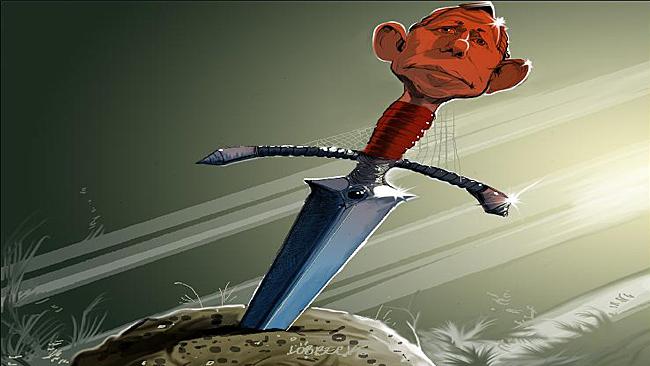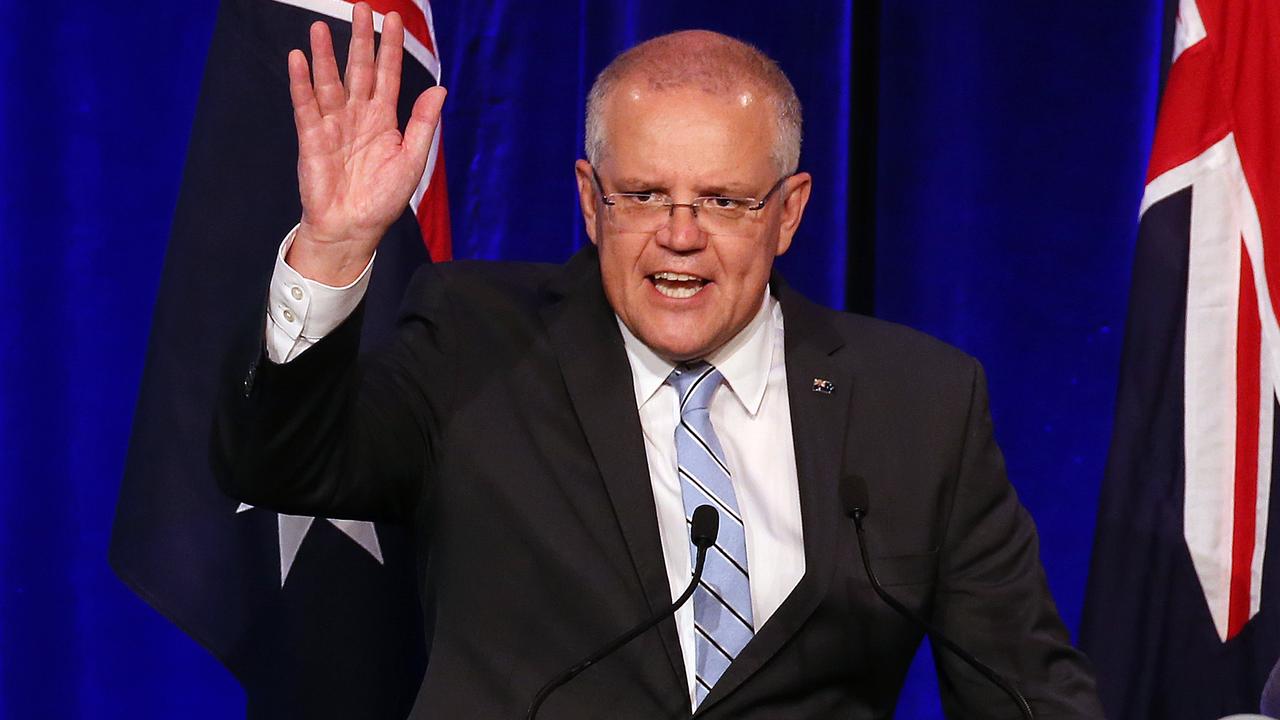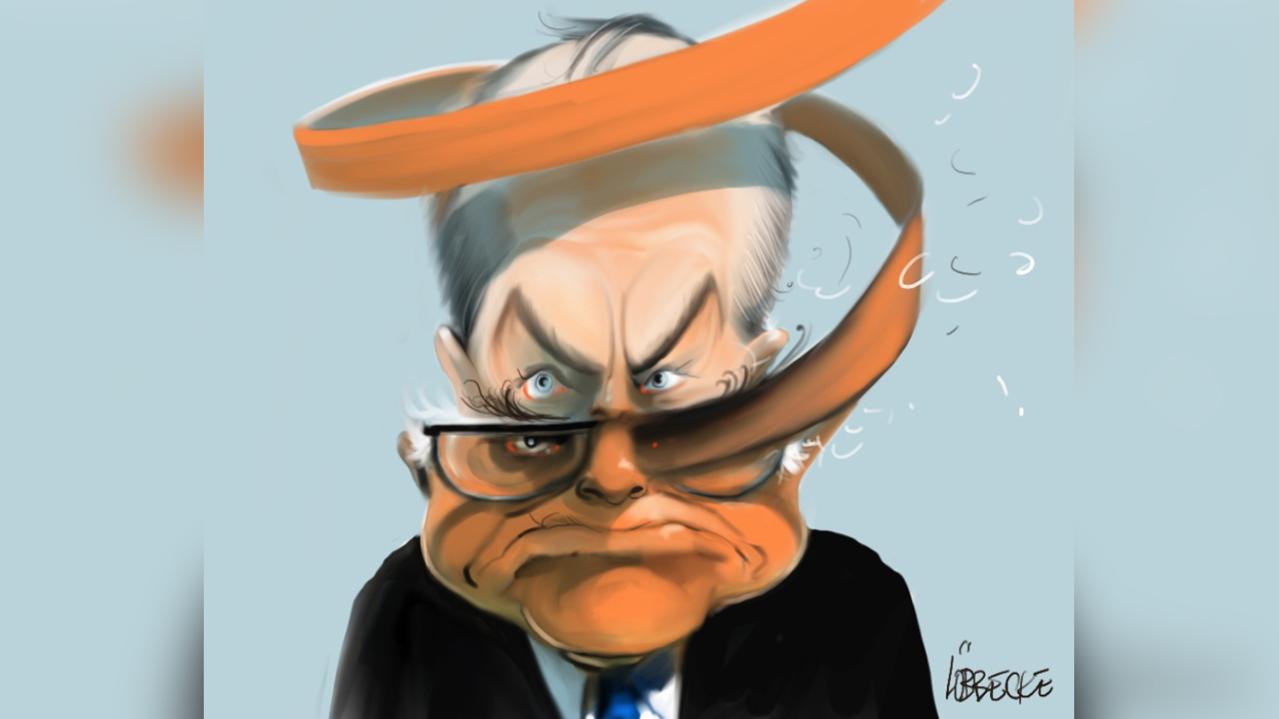Why the Libs won't change their chief

WHY doesn't the Liberal Party dump its deeply unpopular leader, Tony Abbott, and replace him with the more popular (according to the polls, anyway) Malcolm Turnbull? This is the question I most often get asked at business forums or when chatting to engaged voters while discussing the Liberal Party.
The simple answer is Turnbull's popularity doesn't extend to the Liberal parliamentary caucus, where the numbers decide the leader. Within that collective he is anything but popular, not unlike the way the Labor caucus views Kevin Rudd. The important difference is the Liberal Party continues to dominate Labor in the polls, and a conservative party such as the Liberals will not want to change leaders in an election year even if the polls go bad.
And off the back of Turnbull's decision to push hard for Rudd's emissions trading scheme at the end of 2009, the bulk of ordinary Liberal Party members in the branches also are uncertain about Turnbull. With members playing a key role in preselections (unlike goings-on in the Labor Party) few elected MPs will be inclined to switch to Turnbull in defiance of their supporters.
The more complex reason the Liberal Party will not turn to Turnbull ahead of the next election, no matter how poor Abbott's personal numbers get, or even if the Coalition's primary vote sags, comes down to its very different political culture compared to Labor. Leaders get the benefit of the doubt in the Liberal Party, illustrated by a core group in the partyroom that locks in behind the leader, any leader, and does not contemplate shifting.
It is a pick and stick philosophy.
History tells us removing conservative leaders via a challenge is hard to do even when the incumbent's deficiencies are obvious.
When Andrew Peacock initiated a coup against John Howard - whose unpopularity at the time exceeded even Abbott's at present - - the difficulties of rolling a Liberal leader led those accumulating numbers for Peacock to insist caucus members sign a petition in order to lock them in. It was a clinical execution that was kept secret from Howard until the last minute, yet even then Howard's numbers in the leadership ballot exceeded expectations.
When Alexander Downer and Peter Costello united as a "dream team" in 1994, pushing for generational change (with the blessing of Howard and Peacock) to oust John Hewson as leader after he had lost the so-called "unloseable" 1993 election, they still won only by a handful of votes.
The difficulties of removing conservative leaders were never more apparent than during Howard's prime ministership. Costello on a good day would have been lucky to lift his caucus support into the teens, which is a key reason he never challenged Howard, even at the very end.
More recent history again shows us ousting incumbents in the Liberal Party ain't easy. Brendan Nelson suffered in the polls like few Liberal leaders before him, yet Turnbull beat Nelson only by a few votes when he challenged in 2008. And when Turnbull fell to Abbott's sword (yes, he too has "knifed" a leader) following the twin debacles of the OzCar affair and the ETS showdown, Turnbull lost by a solitary vote.
Abbott is a safe bet to contest the next election for the Liberal Party as its leader, even if Turnbull would be an even safer bet of winning handsomely, were he the leader. While Labor Party factional powerbrokers can shift numbers overnight, no such authority is exercised by their Liberal Party equivalents. The leader of the parliamentary Liberal Party is the party's standout powerbroker, even when their personal popularity is suppressing the brand.
Adding to the reasons Abbott is a sure thing to fight this year's election as leader is the fact that his efforts alone caused the turnaround in the Coalition's electoral fortunes since 2009. Partyrooms can be harsh places, but those Liberal MPs who retained their seats at the 2010 election, and the new entrants who owe their careers to Abbott, credit him unreservedly for the competitive position the Liberals are in.
Love or loathe the way Abbott has prosecuted the case against first Rudd and then Julia Gillard, in pure political terms he already deserves to go down as Australia's most successful opposition leader for the carnage he has wreaked on the government.
It has earned him, in the eyes of his colleagues, a second chance to contest an election as leader. A second chance to become prime minister.
Finally, because the Liberal Party now is a more deeply conservative party than during the Howard years, Turnbull's ideological positioning does not easily fit with the attitudes of the caucus, or much of the party membership. Only desperate times would see the Liberals turn to someone as moderate as Turnbull, especially as its coalition partner (the Nationals) is an even more conservative party (and the parties are now one in Queensland).
Given the Coalition has not fallen behind the Labor Party in so much as one fortnightly Newspoll conducted since the carbon tax was conceived, switching leaders because of a polling crisis is simply not on the cards. And because the Coalition's entire case for removing the Labor government is built around Gillard's broken promise on the carbon tax, Liberals could hardly turn to Turnbull just because they are worried about Abbott's unpopularity, in particular with female voters.
With Turnbull not a realistic option to replace Abbott ahead of polling day, a quick glance at the two other options, Joe Hockey and Scott Morrison, highlights just how safe Abbott is in the leader's job. Hockey is still damaged within the Liberal Right for his idea of a conscience vote on the ETS at the time of the last leadership spill, and his moderate tendencies are nearly as out of step with his caucus colleagues as Turnbull's.
Morrison is a more natural ally of the Right, but his one-dimensional persona as immigration spokesman needs to be overcome by a stint in another portfolio, which will happen only after an election victory or defeat. In short, Morrison's parliamentary career is in its early stages and he is far from ready to even be considered as a leadership option.
Ironically, while Abbott is the reason the Coalition became politically competitive after the disastrous leadership stints of Nelson and Turnbull, he is also Labor's most powerful electoral asset going into a campaign. His relentless negativity has torn down Labor's brand, helped along by a serious of government blunders and leadership turmoil.
But Abbott has left himself with wounds that have been opened up by the PM's stinging attack on gender lines. Replacing Abbott with Turnbull as leader would lock in victory for the Coalition at the next election, and a sizeable one at that.
But a Liberal Party led by Turnbull would look very different. The public might like it but the Coalition caucus certainly would not. Besides, leadership changes are fraught with uncertainties - just ask the Labor Party.
The polls suggest Abbott should win the next election despite his personal numbers. Australia's conservative party will do what a conservative ethos demands: stick with the incumbent in an election year. There is no safer bet.
Peter van Onselen is a professor at the University of Western Australia.


